Truthdigger of the Week: John Bercow, Speaker of the U.K. House of Commons
Citing President Trump’s immigration ban, Bercow took a strong public stand against allowing him to speak to the British chamber.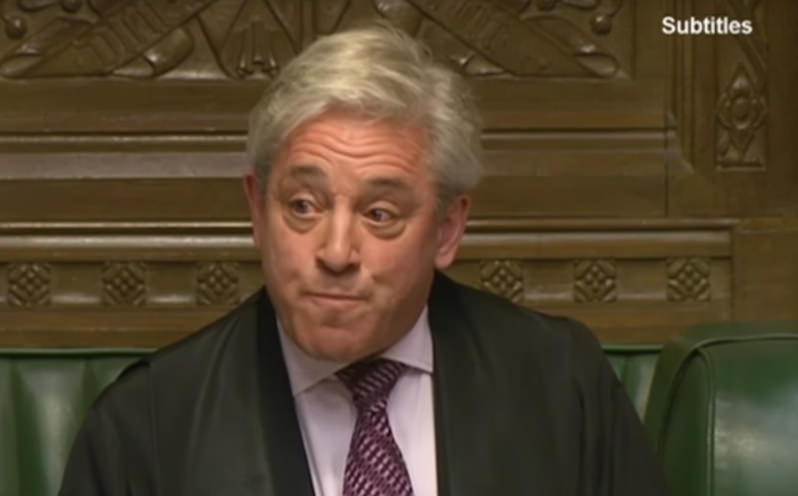
Every week the Truthdig editorial staff selects a Truthdigger of the Week, a group or person worthy of recognition for speaking truth to power, breaking the story or blowing the whistle. It is not a lifetime achievement award. Rather, we’re looking for newsmakers whose actions in a given week are worth celebrating.
It seems that, second to Brexit, the topic du jour in the British Parliament is Donald Trump. John Bercow, the speaker of the House of Commons, made the topic even hotter Monday when he strongly opposed the prospect of the U.S. president addressing Parliament. Bercow said Trump’s immigration ban was an important factor motivating his pronouncement.
The backstory for this move started in 2016, when an overwhelmingly popular petition led to a mandatory debate on whether the then-presidential candidate should be allowed to enter the United Kingdom.
I attended the debate and heard many Labour and Scottish National Party members of Parliament (MPs) voice their concerns about Trump’s clear Islamophobia. This issue was especially alarming to representatives with Muslim constituents who’d been discriminated against in the aftermath of the U.S. Republican candidate’s comments.
I remember quite well that Conservatives joined in the Trump-bashing. Tories (Conservatives) such as Victoria Atkins came up with creative insults, such as “wazzock” (meaning a stupid or annoying person), for the American candidate. But it seemed clear that Conservatives were intent on leaving the door to the U.K. open to this privileged white male (not so much to Europeans or refugees, as we learned in subsequent months).
I recall several Conservatives smirking as they reminded colleagues that it was potentially the future leader of the United States whom they discussed barring. It didn’t seem right to these Tories to restrict the billionaire’s freedom of movement or speech. But that was January 2016—when many people, myself included, didn’t believe Trump would become president.
Fast-forward a year and here we are, in the midst of Trump-fueled polemic after Trump-fueled polemic. Prime Minister Theresa May, who replaced David Cameron in July after the vote on leaving the European Union did not go his way, was the first world leader to visit the newly minted U.S. president. Pictures of the two holding hands were printed in U.K. newspapers, and May even proclaimed that she hoped to establish a relationship similar to that enjoyed by Margaret Thatcher and Ronald Reagan in the 1980s.
Some journalists suspect, however, that May, a vicar’s daughter and, of course, a woman, wasn’t too pleased to embrace the man who said people who shared her biology could be grabbed by the—well, you know. But having begun the process to sever some ties with the European Union, May knows she’ll have to look elsewhere for trade deals. This may explain her eagerness to visit Trump, hold hands and invite him to Great Britain for a state visit.
Many Britons don’t agree with May’s decision, especially as news of the most controversial of Trump’s executive orders, often referred to as the “Muslim ban,” reached ears overseas. Britain has a substantial population of Muslims, some of whom hold dual citizenship in the United Kingdom and one of the seven countries affected by Trump’s ban. These people potentially could be barred from traveling to the U.S. despite assurances to the contrary from the U.S. Embassy in London. Therefore, it’s understandable that the order rattled more than a few Brits.
Now another petition has been drafted regarding a ban on Trump. With a record-breaking 2 million signatures, the petition has gotten Parliament to again discuss barring him (the debate is scheduled for Feb. 20). Thousands protested outside the prime minister’s residence at 10 Downing St. soon after she returned from the U.S., and thousands more may protest again in Parliament Square as the debate goes on. Labour Party opposition leader Jeremy Corbyn called for Trump to be uninvited, an effort backed by nearly 170 MPs.
On Monday, another obstacle was placed in Trump’s path. Speaker of the House of Commons John Bercow said that while he’d previously been against the U.S. president addressing MPs in Westminster Hall (an honor so far granted only to Nelson Mandela, Barack Obama, Charles de Gaulle, Aung San Suu Kyi and Pope Benedict XVI), now that Trump’s travel ban had been issued he was even more vehemently opposed to such an event taking place. Here’s an excerpt from the full transcript of what Bercow had to say on the matter:
What I will say is this — an address by a foreign leader to both houses of Parliament is not an automatic right, it is an earned honour. Moreover there are many precedents for state visits to take place to our country which do not include an address to both houses of Parliament.
The second point is in relation to Westminster Hall. There are three keyholders to Westminster Hall, the Speaker of the Commons, the Speaker of the House of Lords and the Lord Great Chamberlain — ordinarily we are able to work by consensus and the hall would be used for a purpose such as an address … I must say to the Honourable Gentleman, to all who signed his Early Day Motions and to others … that before the imposition of the migrant ban I would myself have been strongly opposed to an address by President Trump in Westminster Hall. After the imposition of the migrant ban by President Trump I am even more strongly opposed to an address by President Trump in Westminster Hall.
So far as the Royal Gallery is concerned … I do not perhaps have as strong a say in that matter … although customarily an invitation to a visiting leader to deliver an address there would be issued in the names of the two speakers — I would not wish to issue an invitation to President Trump.
We value our relationship with the United States. If a state visit takes place that is way beyond and above the pay grade of the speaker. However, as far as this place is concerned I feel very strongly that our opposition to racism and to sexism and our support for equality before the law and an independent judiciary are hugely important considerations in the House of Commons.
Because Bercow is one of the three people who can block an invitation, Trump may have to settle for a visit during which he will not get to address the House of Commons. He will, however, still get to meet with the queen, although Prince Charles may not be interested in attending, given his recent speech about the dangers of populism.
Bercow, a member of the Tory Party, came under a lot of fire for his comments, especially from fellow Conservatives. But his speech received applause from many MPs and inspired colleague Dennis Skinner to shout, “Well done.” (Bercow once expelled Skinner from the gallery for an impolite reference to then-Prime Minister David Cameron.)
Bercow is not considered a Tory favorite. Although he was once a member of some radical right-wing groups, he has moved toward the center over time. He passionately defends gay rights and supports the right to consume marijuana, having stated that a “clampdown on cannabis smokers would be ‘absurd.’ ” He also has tried to modernize the House of Commons by getting rid of such trappings as wigs and breeches to make it “marginally less stuffy and forbidding.”
Some Tories are so annoyed at Bercow’s recent comments that they’re plotting a vote of no confidence. But Bercow, who survived a similar attempt in 2015, seems unfazed by the rumors. Although May has refused to say she has confidence in the speaker since his recent comments, Corbyn has come to his defense, saying Bercow “speaks for Parliament.” The Labour leader added:
“He’s elected by all members of the House, he’s therefore independent, he has the authority of Westminster Hall and over that aspect of State Visits.
“I think he’s spoken absolutely clearly that Donald Trump and his misogyny and his racism and his behaviour over international law, particularly on the convention of refugees, I think he’s absolutely right and I welcome his statement.”
Bercow did apologize to the speaker of the House of Lords for not having discussed his decision with him before announcing it, but he stood by his comments. Bercow cited Trump’s apparent racism and sexism as the main reasons behind his decision, and he issued a bold rejection of the president’s statements and actions against Muslims, Mexicans, women and others.
And so the resistance to President Trump spreads to an unexpected place: the somewhat stuffy and still a bit forbidding galleries of the British houses of Parliament. Although so many American figures are resisting the new president that the British speaker’s stance may not seem to matter, it is important that those abroad who use their pulpits to speak out against Trump also be recognized. Mounting global pressure is crucial to combating injustice.
For standing up and speaking against Trump despite the uproar it caused within his own party, John Bercow is our Truthdigger of the Week.
Your support matters…Independent journalism is under threat and overshadowed by heavily funded mainstream media.
You can help level the playing field. Become a member.
Your tax-deductible contribution keeps us digging beneath the headlines to give you thought-provoking, investigative reporting and analysis that unearths what's really happening- without compromise.
Give today to support our courageous, independent journalists.
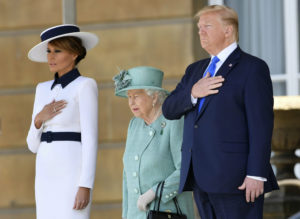
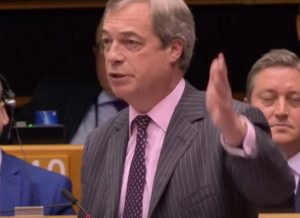
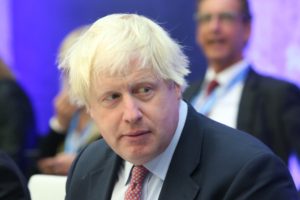
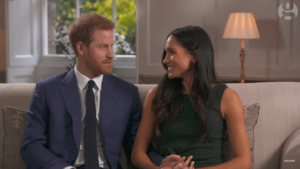
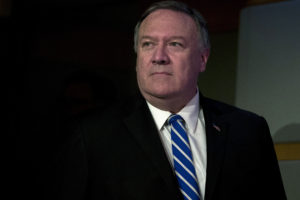


You need to be a supporter to comment.
There are currently no responses to this article.
Be the first to respond.